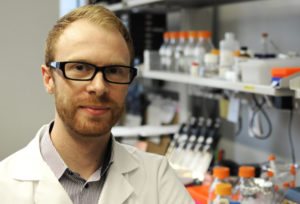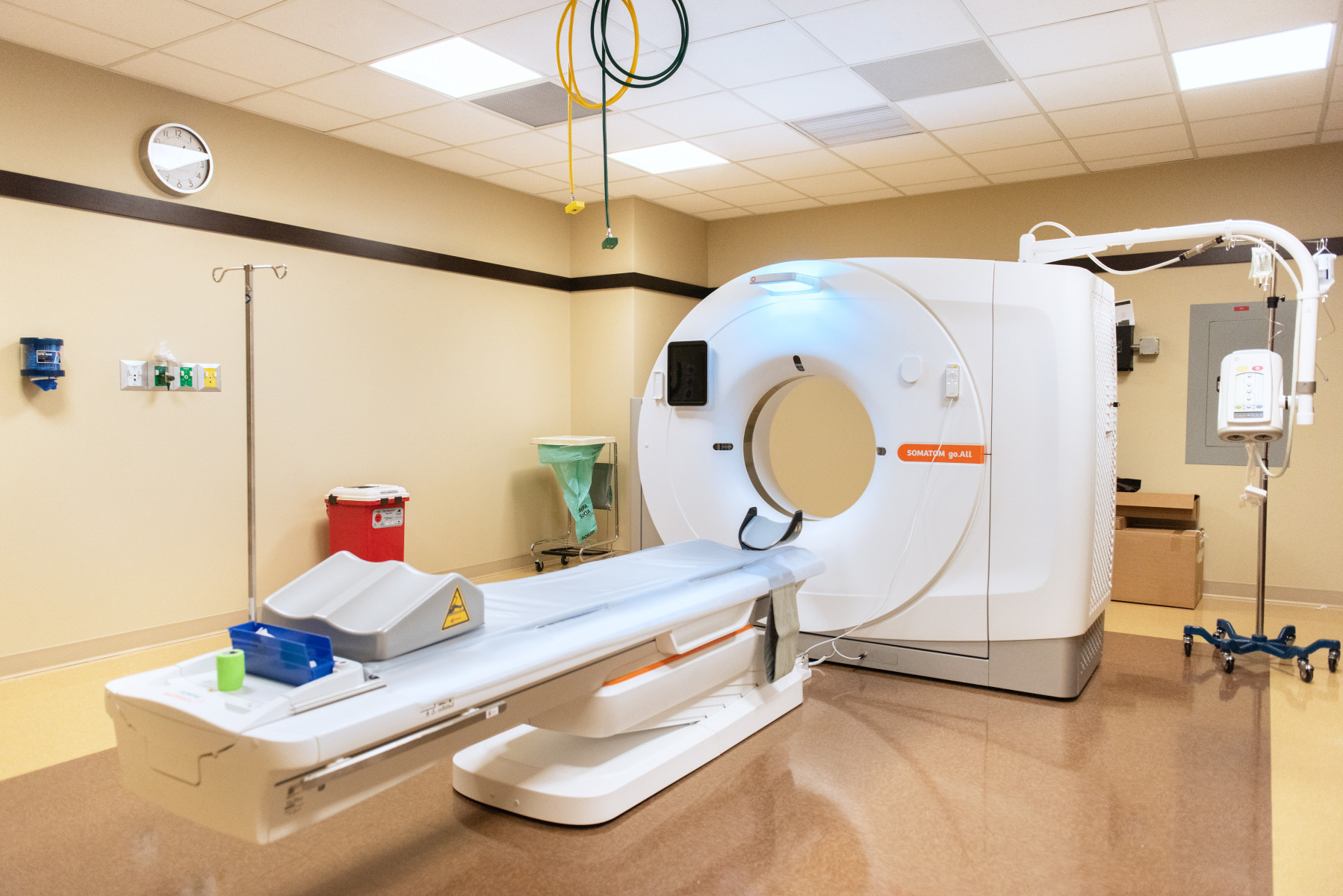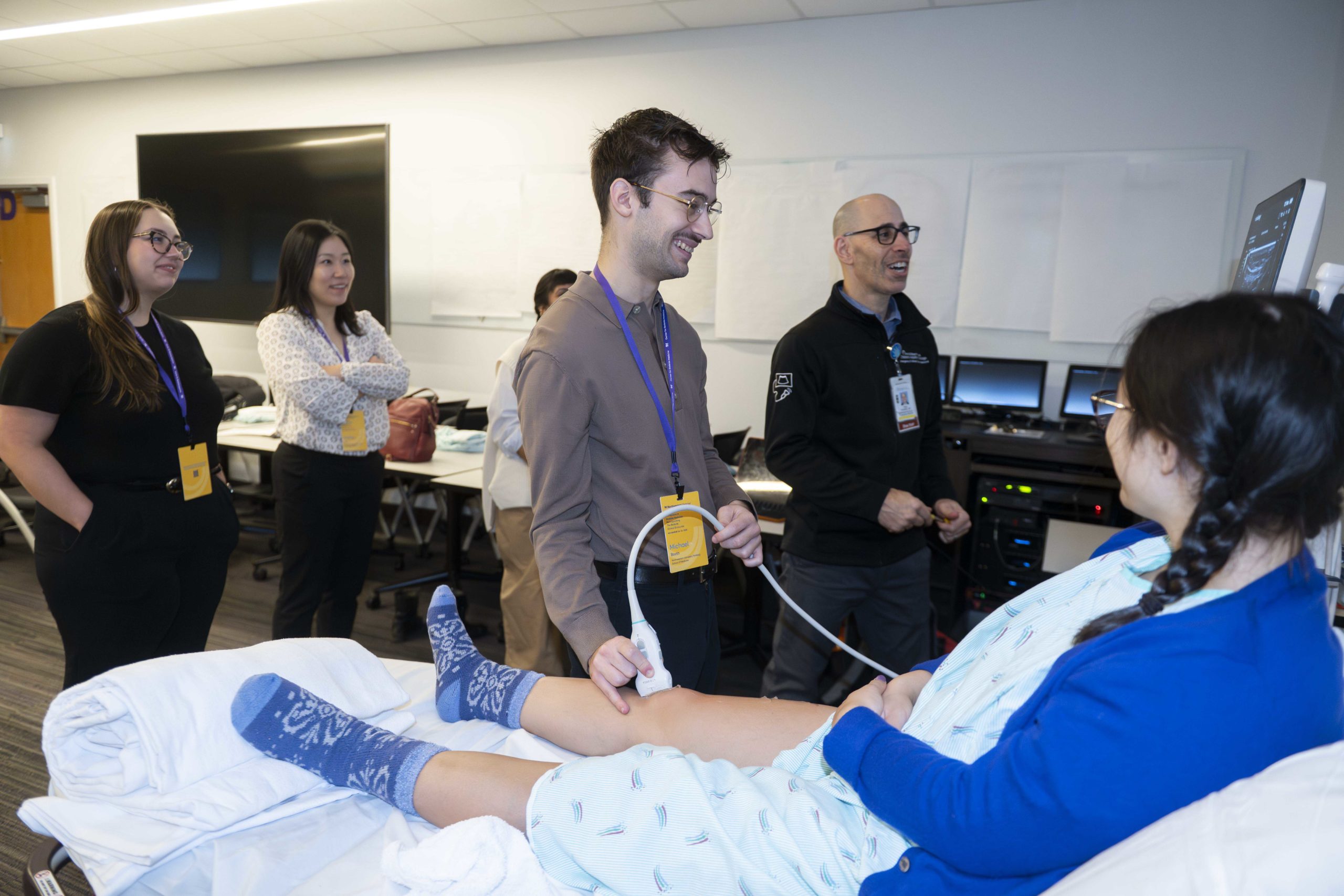
A new Northwestern Medicine study led by a student in the Medical Scientist Training Program (MSTP) provides insight into the mechanisms behind herpes simplex virus (HSV) disease severity in newborns and may lead to the development of more effective treatments.
“The herpes infection in adults is typically asymptomatic and fairly benign, but in newborns it can cause devastating illness and 50 percent of those infected with HSV will go on to have very severe disease or encephalitis,” said Douglas Wilcox, first author of a paper published in the Proceedings of the National Academy of Sciences.
When a host cell detects infection, one response is to activate the protein phosphatase PP1 alpha to shut down protein synthesis. Once a host cell halts protein synthesis, the virus can no longer replicate.
Using mouse models, Wilcox observed that HSV viral protein gamma 34.5 targets phosphatase PP1 alpha, allowing the virus to counter the host’s response to shut off protein synthesis.
“This initial observation was striking,” said Wilcox, who conducted his research in the lab of Richard Longnecker, PhD, professor of Microbiology-Immunology, and in collaboration with William J. Muller, MD, PhD, associate professor of Pediatrics in the Division of Infectious Diseases. “This one interaction was required to cause disseminated – or widespread – disease in the newborn.”
Next Wilcox studied a mutant HSV virus that was unable to target host phosphatase PP1 alpha in the central nervous system of adult and newborn mouse models. He found that the mutant virus caused a delay in mortality, indicating that HSV targeting of phosphatase PP1 alpha contributes to pathogenesis in the brains of both newborn and adult mice.
“I am interested in neuroinflammation because the brain’s response is very different from how other organs deal with infection, and I think this paper starts to get at the fundamental differences between the immune responses of the brain and other organs,” Wilcox said.
In the final part of the study, Wilcox infected cultured brain slices in a model of HSV encephalitis and tested drug treatments. He demonstrated he could modulate this system with drugs to reduce viral replication.
“Although drugs have improved survival, they haven’t changed the neurologic morbidity. Survivors of HSV encephalitis still have a variety of different disabilities resulting from the infection, so it is really important that we look at different ways to control viral infection.”
As an MSTP student pursuing an MD and PhD, Wilcox will complete his clerkships and plans to continue researching the innate immune response in the brain after graduating.
“I think that it’s an amazing area of research because the brain is so different from the rest of the body, and I’m fascinated by how even the smallest insult can have really long-term consequences,” Wilcox said. “The newborn is at a very interesting stage of development, and you have to take this into account when studying disease in the brain.”
The research was supported by National Institutes of Health grants T32AI060523, F30AI116106 and R01CA021776.






